Open Referral has been helping the Miami-Dade 2-1-1 Helpline explore new kinds of partnership models that can deepen the impact of their operations while enhancing the sustainability of their program. (In 2017, we reported on the first phase of our partnership, which you can read here.)
In 2019, we completed the second phase of the Miami Open211 pilot project.
Read the report from Phase Two here.
Through this pilot, we’ve transformed the 2-1-1 Helpline into an open platform that provides standardized, machine-readable resource data-as-a-service to the Miami-Dade community. In this 2nd phase, we sought to partner with a community group that already maintained their own resource directory – to see if we could 1) improve the quality of resource information that is available to the community, while 2) reducing duplicative efforts, and 3) finding new revenue-generating opportunities.
How the pilot project worked:
The South Dade Cares Coalition approached 2-1-1 for help with a new version of the resource guide that coalition members have made available for years to communities around Homestead, Florida. Their resource directory – printed roughly every other year – cost hundreds of hours of volunteer labor and thousands of dollars.
We wanted to see if we could successfully repurpose 2-1-1’s resource database for this community partner’s specific needs. Our pilot objective was to deliver data on the same services, at a higher level of quality, in an easy-to-use online interface.
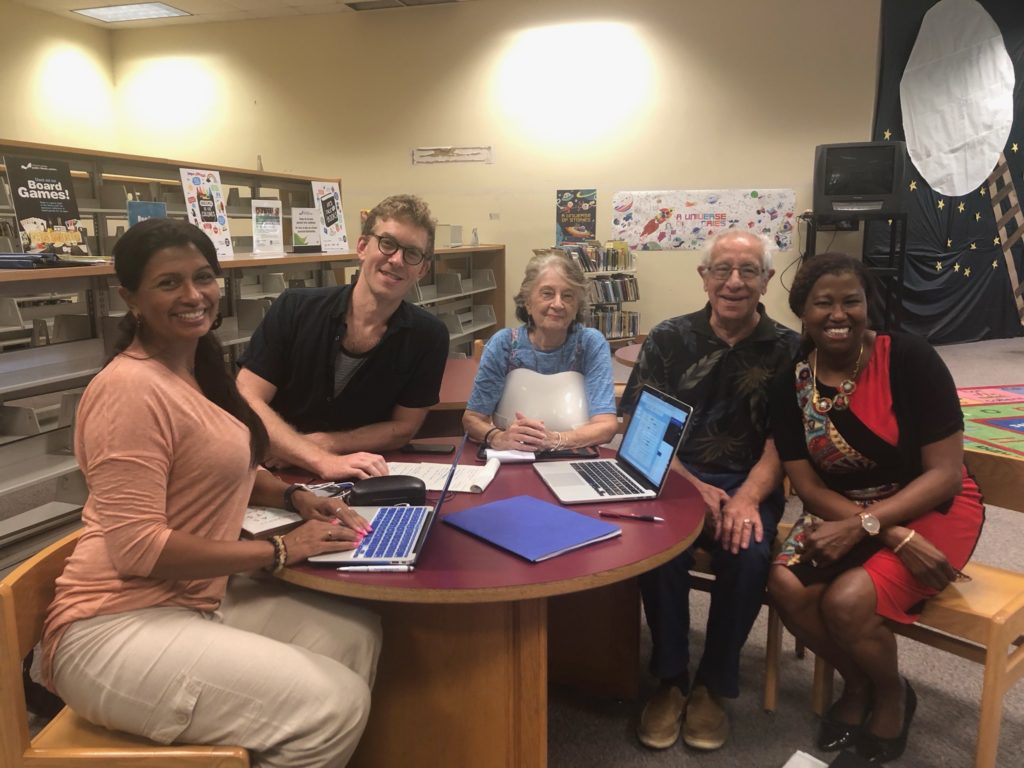
We first compared the South Dade Cares resource directory to 2-1-1, and discovered a 70% overlap between the two. (Most of the records unique to South Dade’s directory were welcomed by 2-1-1 as new additions to its database.) We then mapped the South Dade Cares’ set of categories to the 2-1-1 taxonomy, ensuring that 2-1-1’s categories could be presented with language that would resonate with South Dade stakeholders. Then we deployed a website that shows services available in South Dade, and categories specific to their interests, by default.
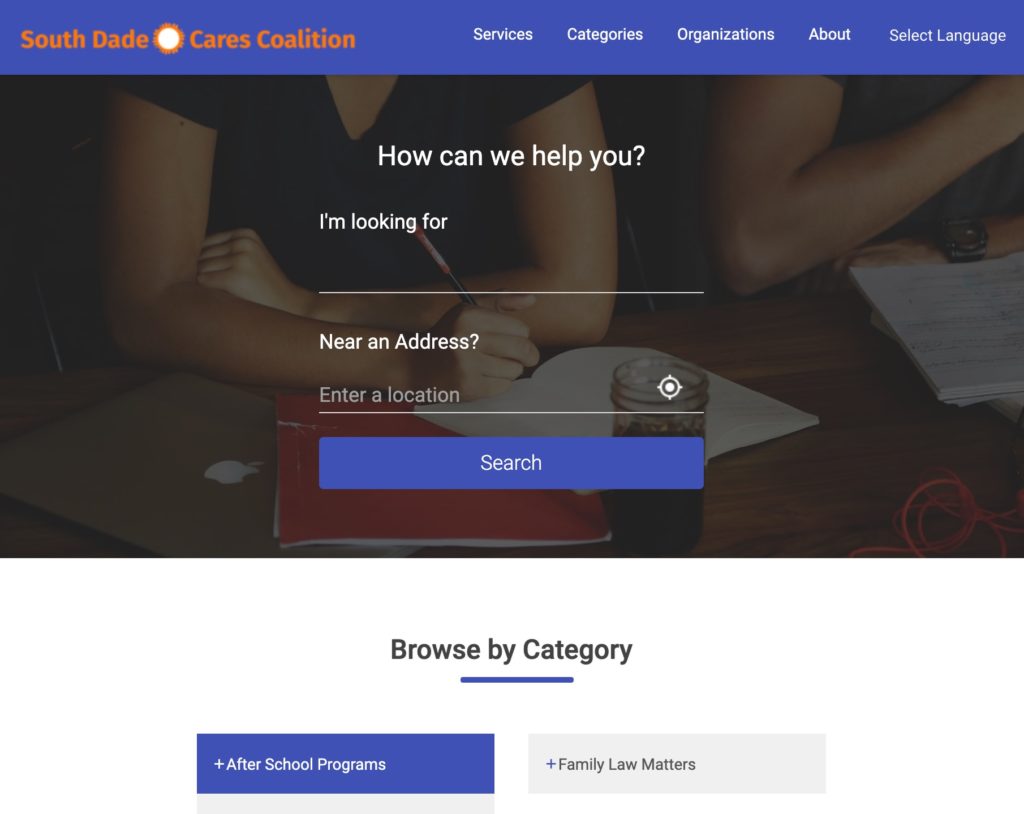
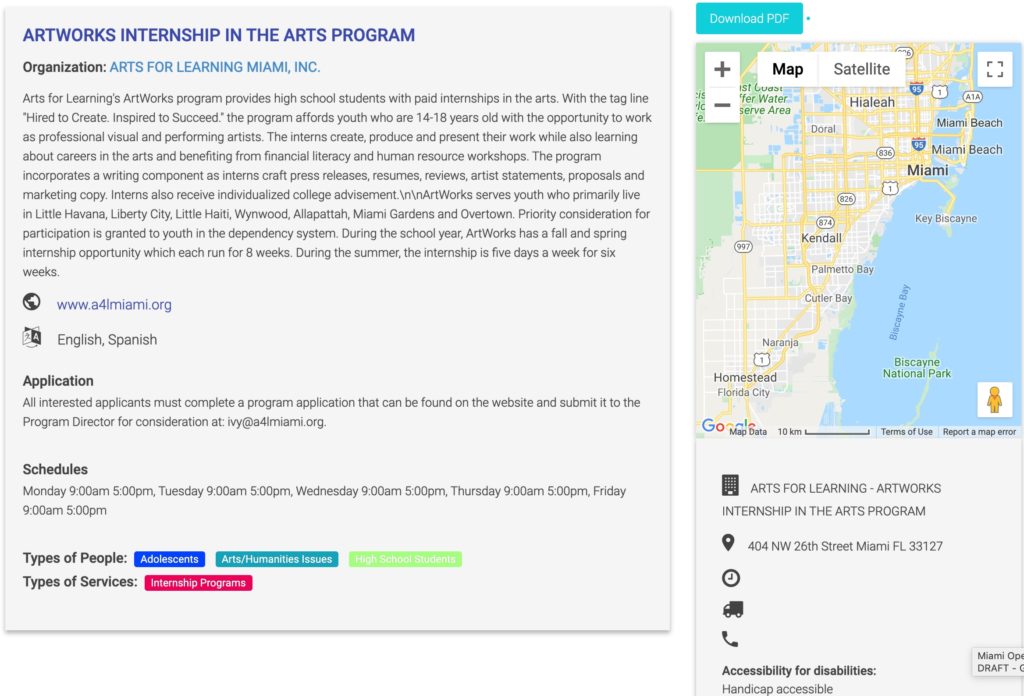
Finally, we upgraded the Open211 developer portal, so that other organizations can take their own approaches to using 2-1-1’s data.
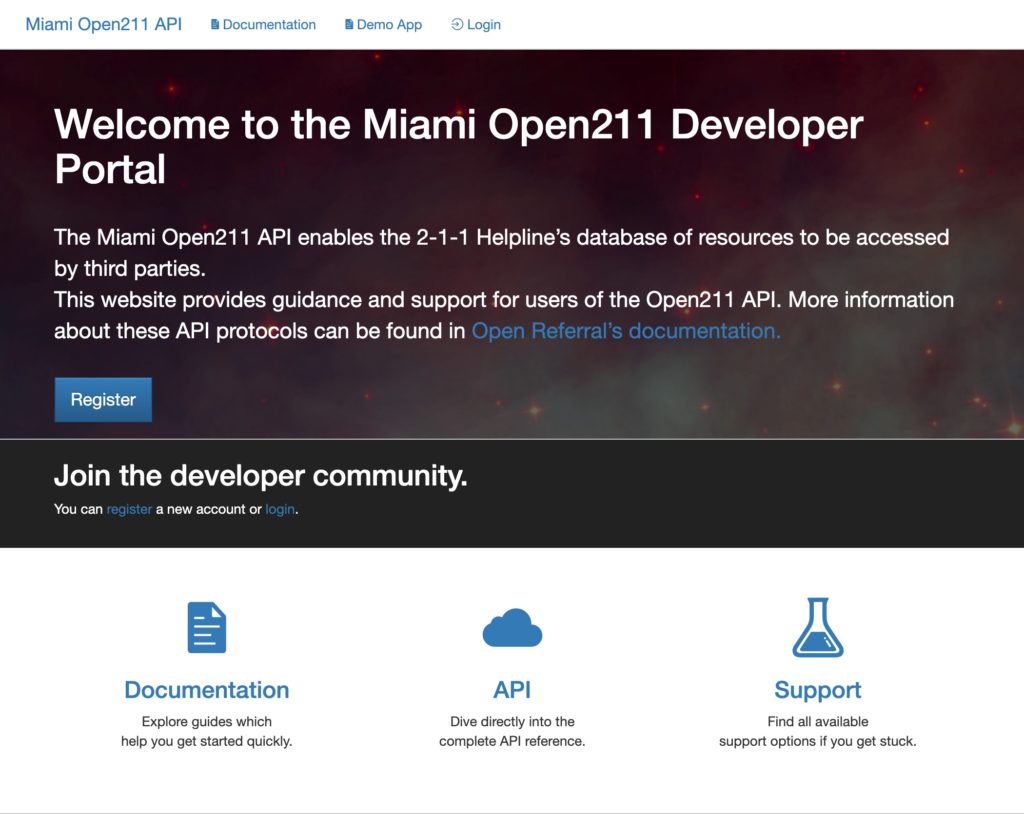
Dr Flore Lindor-Latortue, Executive Director of the Association of Exchange and Development of Activities & Partnerships, was responsible for the South Dade Cares Coalition resource guide. She now says: “By working with 2-1-1, we save all the time that we didn’t have in the first place to gather all this information ourselves. And it gives us confidence in this information, because their resource data managers ensure these services are legitimate.”
How this can become sustainable: Service-Level Agreements
This phase of the pilot was a success – though a big question remains: how can this become sustainable?
For the purposes of this experiment, we developed this website and the associated data service to the South Dade Cares Coalition for free. The website code is open source. The Miami Open211 API is freely available for third parties to use.
So how could 2-1-1 ever recover the costs of these operations? Well that’s a great question! And an answerable one:
Having conducted market research throughout this process, we have learned that many potential institutional users of 2-1-1’s data (and we’ve identified dozens) can’t or won’t use a free service. Institutions (like government agencies, foundations, healthcare systems, etc) want guaranteed levels of service. In other words, they will pay for ‘Service-Level Agreements’ that ensure delivery of features like ubiquitous API uptime, high-frequency updating, analytics and reports, etc. Organizations could technically implement their own uses of 2-1-1’s data for free, but even those who (unusually) have the technical capacity to do so are likely benefit from premium services and topical assistance (for example, with curation of categories) that 2-1-1 is uniquely positioned to provide.
Thanks for making this happen
The Open Referral Services website is open source software, built by Sarapis using the Laravel web development framework. In this phase of the pilot, we also enabled the Miami Open211 API to receive regular updates from the 2-1-1 resource database through an automated extract-transform-load cycle, so that the API and this website – and any other systems that might use the data – can be continually updated as 2-1-1 conducts its resource data maintenance operations. Thanks to Devin Balkind of Sarapis, and Shelby Switzer of CivicUNREST, for their work on this project.
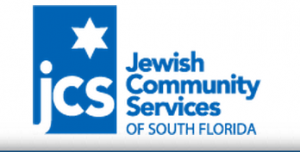 Thanks to the United Way of Miami-Dade and Microsoft’s TechSpark program for their support. And, most of all, thanks to the sponsors of Miami Open211 and stewards of the 2-1-1 Helpline, Jewish Community Services of South Florida.
Thanks to the United Way of Miami-Dade and Microsoft’s TechSpark program for their support. And, most of all, thanks to the sponsors of Miami Open211 and stewards of the 2-1-1 Helpline, Jewish Community Services of South Florida.
Please reach out to explore opportunities to launch similar pilots in your community!

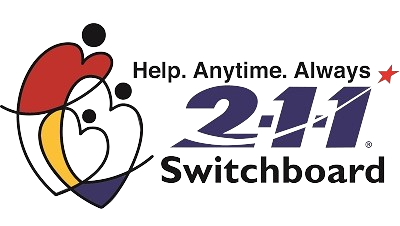
Leave a Reply